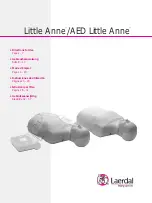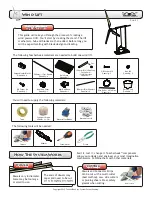
2
2. Description
The Hall effect basic apparatus provides contacts and
power supply for the circuit boards with a germa-
nium crystal (1008522, 1009810 and 1009760), also
holding them in place in experiments measuring the
Hall effect and how it depends on temperature, mag-
netic field or sample current, as well as experiments
on electrical conductivity.
The apparatus contains an adjustable constant cur-
rent source for the sample current, a measurement
amplifier with offset compensation for the Hall volt-
age and adjustable heating for samples. The heating
automatically cuts out at 170°C to protect fragile ger-
manium crystals. Hall voltage, sample current, sample
voltage and temperature can all be read off from the
display, which can be switched between these various
modes. In addition, Hall voltage and sample voltage
can be tapped directly via contacts on the front, and
three voltage equivalents for Hall voltage or sample
voltage, sample current and sample temperature on
the side. On the right-hand side of the case there are
three mini-DIN sockets for computer-based measure-
ment of the quantities mentioned above using a 3B
NET
log
TM
unit.
The equipment is set up on the U-shaped core of the
multi-piece transformer kit. The magnetic field can be
measured using a magnetic field sensor adjacent to
the crystal.
3. Contents
1 Hall effect basic apparatus
1 U-shaped holder
2 Connector leads with 8-pin mini-DIN plugs
Instruction manual
4. Controls
4.1 Decoupled measurement outputs for measur-
ing voltage equivalents for quantities
Fig.1 Measurement outputs using 4-mm sockets and 8-pin
mini-DIN sockets for 3B NET
log
TM
a/e
Hall voltage/sample voltage*
b/f Sample
current
c/g Sample
temperature
d Earth
socket
* only if
U
P
is being displayed, otherwise it outputs the
Hall voltage
4.2 Measurement outputs for direct measure-
ment
Fig. 2 Measurement outputs for direct measurement
h1, h2 Sample voltage
i1, i2 Hall voltage
•
Caution: do not any apply an external voltage to
the measurement outputs!
4.3
Buttons for switching display and correspond-
ing LEDs
Fig. 3 Buttons for switching display
k
Hall voltage or sample voltage (Hold down for 2
s to display sample voltage)
l Sample
current
m Sample
temperature


























